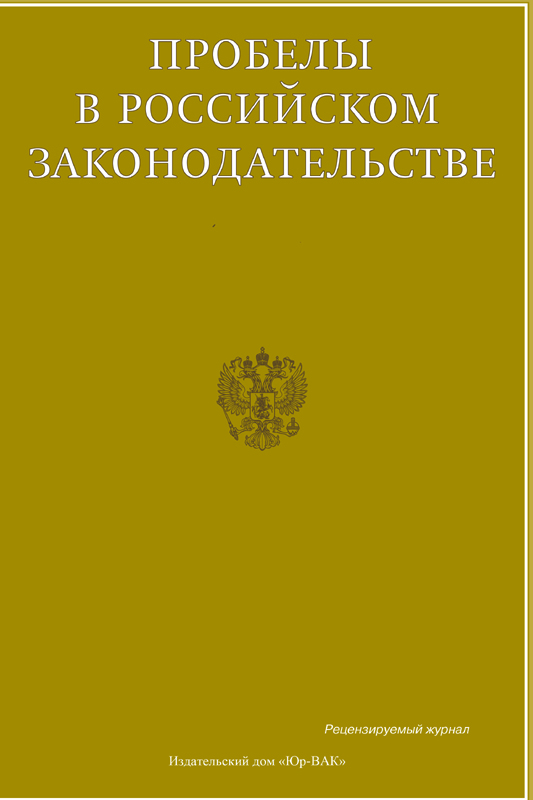Основные проблемы определенности норм права, регулирующих оперативно-розыскную деятельность в Российской Федерации
- Авторы: Майдыков А.Ф.1, Майдыков А.А.1, Парфенов А.В.1
-
Учреждения:
- Академия управления МВД России
- Выпуск: Том 15, № 5 (2022)
- Страницы: 349-358
- Раздел: Статьи
- URL: https://journals.eco-vector.com/2072-3164/article/view/531761
- ID: 531761
Цитировать
Аннотация
Полный текст
Об авторах
Анатолий Федрович Майдыков
Академия управления МВД России
Email: maydikov@mail.ru
д-р юрид. наук, профессор, заслуженный деятель науки Российской Федерации, профессор кафедры управления органами внутренних дел в особых условиях Центра командно-штабных учений Москва, Россия
Андрей Анатольевич Майдыков
Академия управления МВД Россииканд. юрид. наук, доцент, доцент кафедры организации оперативно-разыскной деятельности Москва, Россия
Александр Вадимович Парфенов
Академия управления МВД России
Email: tischagin@yandex.ru
канд. юрид. наук, доцент, начальник кафедры организации оперативно-разыскной деятельности Москва, Россия
Список литературы
- Бобров В.Г. Понятие оперативно-розыскного мероприятия. Основания и условия проведения оперативно-розыскных мероприятий: лекция. М., 2003.
- Большой толковый словарь русского языка, Санкт-Петербург, 1998.
- Брылев В.И., Лях Л.А. Некоторые вопросы правового регулирования оперативно-розыскной деятельности в противодействии преступлениям // Актуальные проблемы противодействия коррупции: Мат. Всеросс. научно-практ. конф. (12-14 октября 2006 г.). Краснодар: КубГУ. 2006.
- Брылев В.И., Хренков Е.В. Понятие оперативно-розыскного мероприятия // Фундаментальные исследования. - 2014. - № 9-4. - С. 912-915;URL: https://fundamental-research.ru/ru/article/view?id=34953 (дата обращения: 05.12.2021).
- Горяинов К.К., Кваша Ю.Ф., Сурков К.В. Федеральный закон «Об оперативно-розыскной деятельности»: комментарий. М., 1997. С. 200.
- Иванов П.И. Организация прокурорского надзора за оперативно-розыскной деятельностью (понятие, сущность и содержание) // Вестник Владимирского юридического института. 2021. № 1 (58). С. 33-40.
- Парфенов А.В. Генезис оперативно-розыскной деятельности в свете учения о розыскной и идентификационной деятельности // Труды Академии управления МВД России. 2020. № 3 (55). С. 51-56.
- Правовые основы организации оперативно-розыскной деятельности: курс лекций / Парфенов А.В., Атмажитов В.М., Лапунова Ю.А., Ханнанов Р.Р. - Москва: Академия управления МВД России, 2021.
- Теория оперативно-розыскной деятельности: учебник / под ред. К.К. Горяинова, В.С. Овчинского, Г.К. Синилова. М., 2021.
- Фирсов О.В. Правовые основы оперативно-розыскных мероприятий: учеб. пособие. М.: Норма: ИНФРА-М., 2011.
- Халиков А.Н. Правовые основы оперативно-розыскной деятельности. Курс лекций. М., 2007.
- Чечетин А.Е. Актуальные проблемы теории оперативно-розыскных мероприятий. М., 2006.
- Шумилов А.Ю. Оперативно-розыскная деятельность: вопросы и ответы. В 2-х кн. Кн. 2: Оперативно-розыскные мероприятия и меры: Учебно-практическое пособие. М., 2008.
Дополнительные файлы









